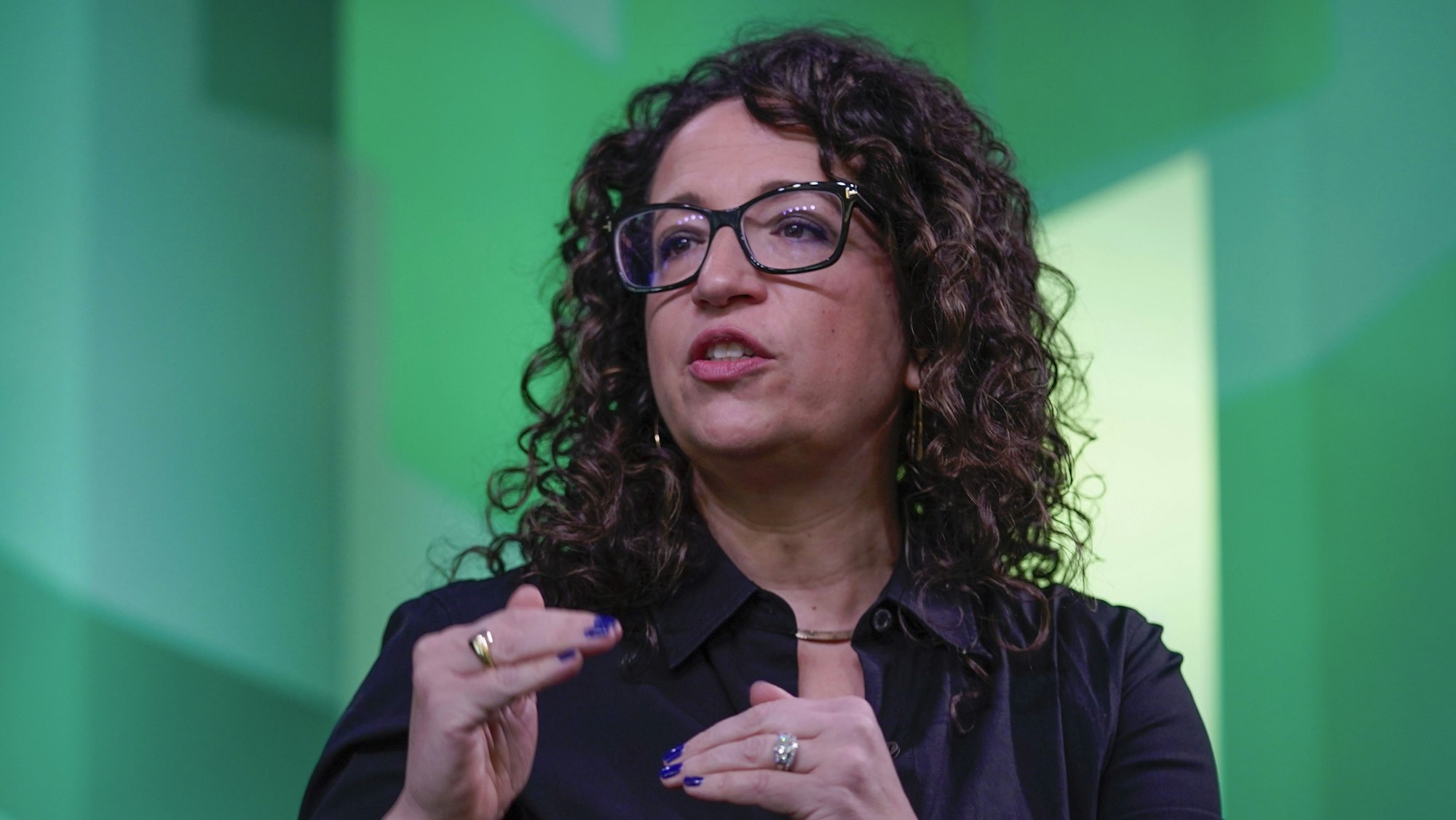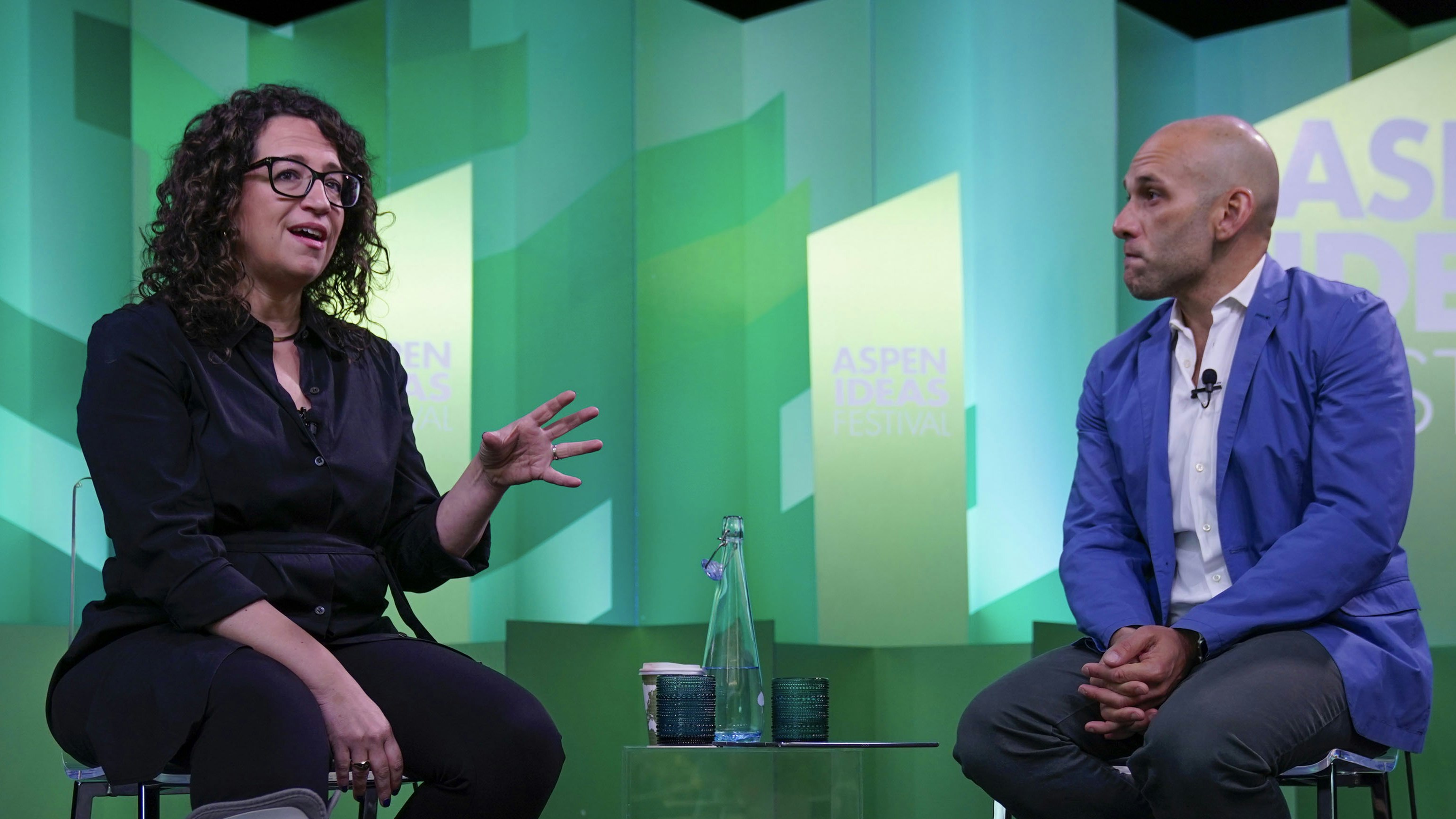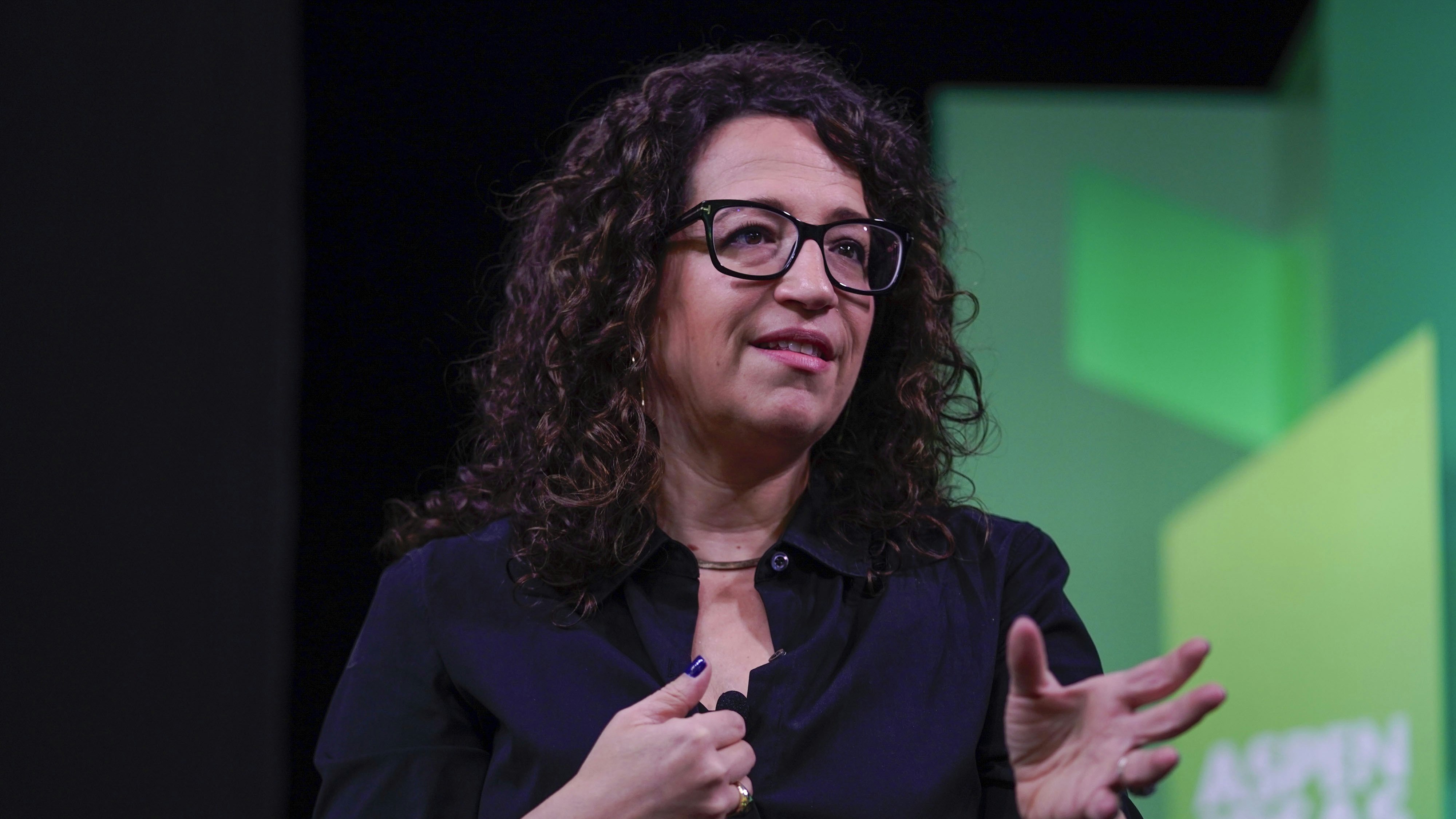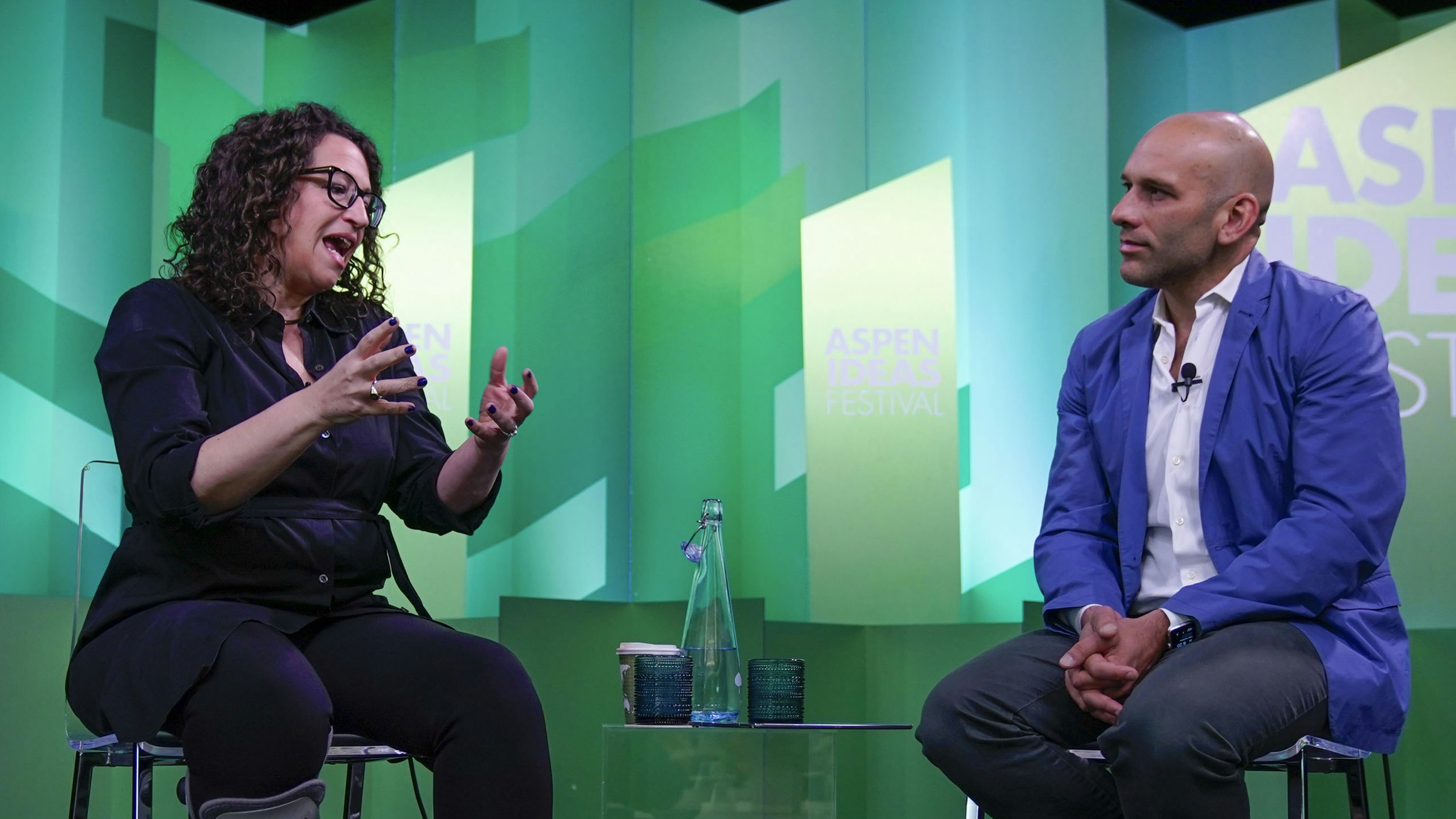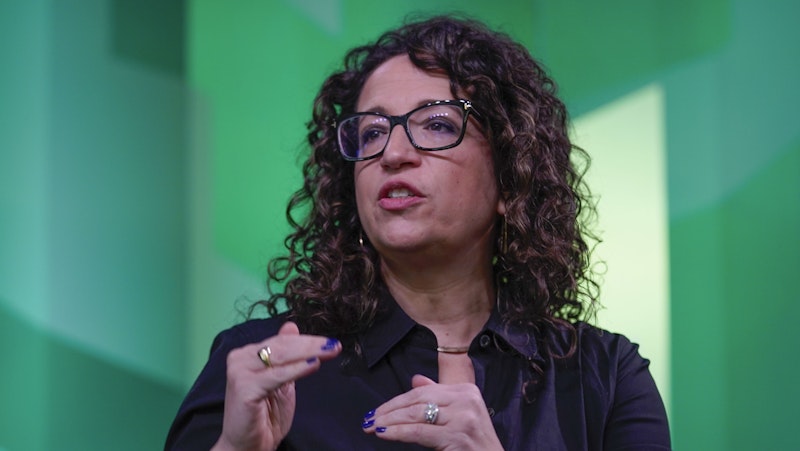
Thinking Machines and the Future of Humanity
Setup
Within our lifetimes, AI will, by design, begin to behave unpredictably, thinking and acting in ways which defy human logic. Big tech companies may be inadvertently building and enabling vast arrays of intelligent systems that don't share our motivations, desires, or hopes for the future of humanity. Is it too late to change course and realize a human-centered future for artificial intelligence?
- 2019 Festival
- Technology
- Education
- Arts
- Economy
- Society
The US and China: different mindsets, different futures
Chinese and US companies dominate AI technologies in the present and are set to control their future, says Future Today Institute CEO Amy Webb. But the idiosyncrasies of these two innovation powerhouses are resulting in dramatically different visions for the future of humanity’s relationship with AI. Webb explains these differences, and why they matter:
Who owns your face?
Artificial intelligence technologies are ravenous for data — the more data they can gather, the more effective they are. Amy Webb warns that we haven’t grappled with fundamental questions about our relationship to AI and data, and that we’re facing existential uncertainty as AI data collection works its way deeper into our lives.
What do you think?
The answer to “Who owns your face?” should be obvious, says Webb, but the rise of facial recognition software has complicated that question. What rights do individuals have to their own data when they walk through a store that utilizes facial recognition, for example? Webb says these are the sorts of questions about data collection that we, as a society, are ignoring.
Should everyone get a “digital dividend?”
Amy Webb has a radical proposal to create what she calls a “digital dividend.” Her idea is to use blockchain and a collective pot of earnings to give everyone a cut of the money that tech companies are making through data collection:
Wal-Mart shopping carts and the nuance of AI integration
Would you use a Wal-Mart shopping cart outfitted with a biometric reader? The reader, in the handle of the cart, transmits the shopper’s vitals to in-store employees. Wal-Mart officials think this technology will make for a better shopping experience. It will also make the big box store more money (which is why they’re developing it). Amy Webb says there are inherent problems in this model.
There may be a place for biometric shopping carts in our society, but Webb thinks the financial incentives behind AI technologies are rushing the profound conversations needed while developing such a technology.
The brains behind AI are homogenous, and that’s a problem
Although modest gains towards diversity have been made in recent years, the workforce developing AI technologies is overwhelmingly white and male. And most graduated from the same cadre of universities. Amy Webb suggests a compelling case for diversity in the AI technology workforce:
This excerpt has been lightly edited for clarity
-

Amy Webb: The people who built the [TSA screening technology] weren’t people who were familiar with enormous hair, or weaves, or bras with underwire...The system wasn’t trained to recognize me. Why? Because somebody like me wasn’t in the room when the data set was built, when the algorithms to use that data were built, when the testing was done, and when the learning was done. That entire chain of decision-making excluded me, which now means that when I go through this stupid machine at the airport I can expect someone to get very familiar with me. That’s a small inconvenience. We could probably spend three hours going through serious infractions in the criminal justice system, and [discover] serious ways in which this is being used to really hurt people.
Learn More
Additional Information
Resources
Here’s the clearest picture of Silicon Valley’s diversity yet — Reveal
"The Big Nine: How the Tech Titans and Their Thinking Machines Could Warp Humanity" by Amy Webb
Explore More
Technology


Being a parent today is full of stress, pressure and information overload. Experts offering advice are everywhere, and for some parents, the wealth of available resources can...

Capitalism has delivered prosperity for many, but not for all. Disparities according to gender, race, and geography have left millions behind, while rising concentrations of w...


The quest for work-life balance is never ending for many of us. The advice in this talk from the 2023 Aspen Ideas Festival still holds a lot of relevance, so we’re bringing it...


Julia Louis-Dreyfus has kept us laughing for years in her roles as Elaine Benes in “Seinfeld” and Selina Meyer in “Veep.” But her most recent work has her shifting from comedy...


While the workforce continues to evolve in response to economic shifts and technological advancements, one thing is certain — the traditional blueprints for education and the...


Living as a trans person in America comes with its share of challenges, which are sometimes even life-threatening. But some say it can also open up access to incredible freedo...

Entrepreneurs view the world differently. Where others see challenges, they see opportunities. They’re a group of self-starters and strivers with the courage to take big risks...

Space… the final metaphor for the unknowable. But we are certainly trying to understand what goes on out there, and the more we learn, the more fascinating questions start to...


It’s a tough time to try and express the complexity of life honestly. Writer Chimamanda Ngozi Adichie doesn’t shy away from truth-telling and believes we should all step up an...

Global conflicts and health crises have put into stark relief deeply-ingrained gender roles in society. Yet the past years have also seen record-high numbers of women running...


Few working technology reporters have been around as long as Kara Swisher. The start of her career coincided with the emergence of the internet, and she’s interviewed almost a...


Creativity is as intrinsic to our species as any of our basic instincts, says Debbie Millman, designer and curator. But for millions of people in the United States, the abilit...


The entertainment industry has had to pivot and refresh time and again to adapt to constant changes in format, business models and attention spans. Somehow, producer Brian Gra...

The people in our lives shape who we are. But great relationships don’t just happen — they take care, intention, and ongoing effort. How do you know when to let go, adjust exp...


Advances in medicine and healthy living mean that more and more people will live to be 100. But just because their bodies can last doesn’t mean their bank accounts will keep u...


In the early days of cable television, there wasn’t a single network aimed at Black audiences. Sheila Johnson and her husband at the time saw an opening, and put all their hop...


Owning a professional sports team is not for the faint of heart. Results are volatile and wins and losses come with the strong emotions of a city’s fan base. But it’s a sound...

Setting audacious goals helps to redefine what is achievable in health, medicine, and science. As we deepen understanding of the human genome, unravel the mysteries of the bra...


Looking around and experiencing the suffering and injustice in the world can make it difficult to believe that happiness exists. But the Judeo-Christian tradition teaches that...


Millions of children across America don’t have art classes in school and don’t grow up going to art museums and galleries. They might be hours away from the closest museum, or...


